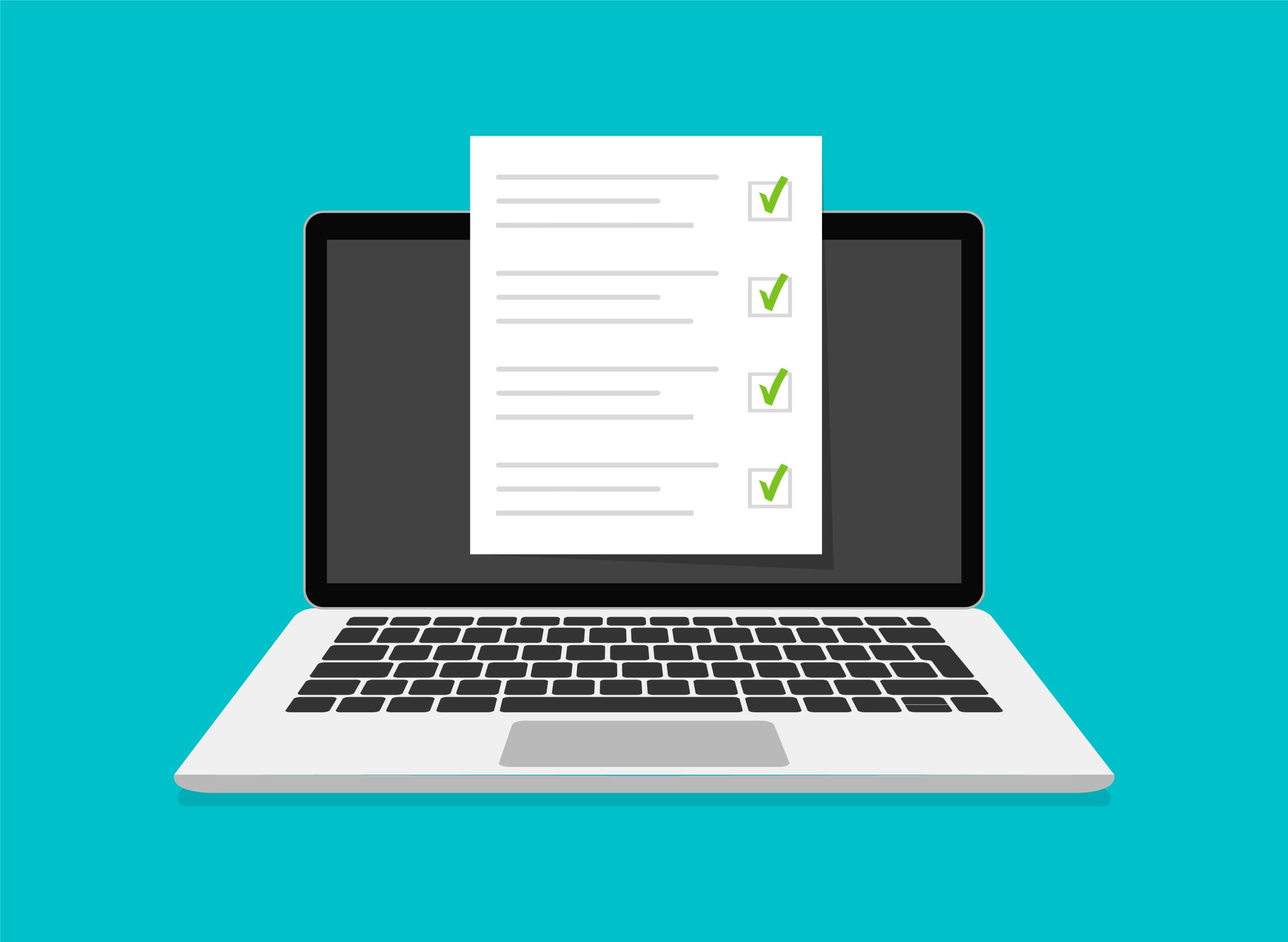
A CareerBuilder survey found that 70% of employers have turned down candidates because of what they found online. Before most interviews even happen, hiring managers have already formed an impression—often from a few quick searches on Google, LinkedIn, or other platforms.
That quick search might surface old social posts, public records, archived content from the Wayback Machine, or forgotten photos you never meant to share. Managing that digital footprint before it manages you is essential if you want to stay in control of your professional story and make a positive impression.
What Is a Quick Search?
A “quick search” is the informal background check that happens before the formal one. It’s when a recruiter or hiring manager types your name into Google, scrolls through your LinkedIn profile, maybe checks Facebook or TikTok, and decides whether to move forward with your application.
While professional verification services like HireRight or ScoutLogic handle the formal screenings, these quick searches shape first impressions long before any paperwork begins. For employers, it’s about minimizing risk and ensuring they select the right candidate. For candidates, it’s about passing that first invisible test and showcasing professionalism.
Why Employers Use Quick Search Tools
Hiring is expensive, and a single bad decision can cost more than just money. That’s why recruiters cross-check applications against public data—to confirm identity, verify work history, and flag potential problems early. Quick search tools help employers efficiently access relevant information instantly, narrowing down the list of candidates to those who meet the company’s standards.
According to the Society for Human Resource Management (SHRM), roughly 40% of resumes contain some form of inaccuracy. Quick searches help employers catch those inconsistencies. They also reveal how a person communicates, reacts under pressure, and fits within a company’s culture—all cues that don’t show up on a résumé.
What Employers See on Social Media and Online Platforms
Social profiles are often the first stop. Recruiters skim posts, photos, and comment histories for tone and judgment. They look for signs of professionalism—or potential issues that might affect workplace harmony.
Platforms like TikTok, Instagram, or OnlyFans can create unintended impressions, especially when content crosses into controversial or overly personal territory. Even if you’re qualified, an unfiltered post can change how someone views your reliability and fit for the team.
A 2022 SHRM report found that 43% of HR professionals have withdrawn job offers based on what they saw on social media. That’s not paranoia—it’s precedent and a clear example of how online information influences hiring decisions.
How Social Posts Influence Hiring Decisions
Your posts can say more than you think. Employers often scan for warning signs such as:
- Disrespectful comments about past employers or colleagues
- Arguments or offensive remarks that reflect poor judgment
- Exaggerated claims about work experience or skills
- Signs of impulsive or aggressive behavior that could cause workplace issues
These moments shape perception. A single screenshot can outweigh years of good work. To protect yourself, keep your profiles private when possible and curate public ones to reflect the same professionalism you bring to an interview.
Setting Privacy Controls That Matter
Privacy settings aren’t just for keeping out strangers—they protect your career, too. At a minimum, you should:
- Restrict who can view your posts and personal information
- Limit your profile visibility to approved connections or friends
- Enable two-factor authentication to secure your accounts against unauthorized access
Pew Research reports that 81% of adults worry about their online privacy, and Verizon found that two-factor authentication prevents nearly all attempted breaches. A few simple settings can prevent a small mistake from becoming a lasting problem in your professional life.
What Public Records Reveal to Employers
Background reports can include far more than social posts. Employers may review:
- Criminal or driving records
- Credit history, especially for finance-related jobs
- Court filings or public legal data
- Employment and education verification through official channels
These checks are routine, but access is regulated. Under the Fair Credit Reporting Act (FCRA), employers must obtain written permission before pulling a report and must disclose if the results influence their decision.
You have rights to dispute inaccuracies, and credible reporting agencies must investigate any errors within 30 days to ensure fairness.
Do Criminal Records Show Up in Quick Searches?
Yes—especially when third-party screeners are involved. Most agencies pull data from national and state databases like the FBI’s NCIC. Some checks are fingerprint-based; others rely on names, which can lead to mistaken identity.
Employers must follow Equal Employment Opportunity Commission (EEOC) guidelines, meaning they can’t make blanket rejections based on criminal records. Any decision has to relate directly to the job in question. Many companies even provide candidates the chance to explain or appeal results before final decisions are made.
Do Employers Check Credit Histories?
For certain roles—especially those involving money or sensitive data—yes. Credit checks help gauge financial responsibility. Banks, retail chains, and government agencies often use them to screen for fraud risk or conflicts of interest.
According to SHRM, 73% of companies run credit checks for financial positions. However, employers must follow FCRA rules: they need your consent, must notify you before taking action, and must allow you to dispute any inaccuracies.
What Employers Notice on LinkedIn and Google
LinkedIn has become the professional résumé most people never stop updating. Employers look at:
- Work history and endorsements from colleagues
- Activity and tone in posts or comments
- Overlaps or gaps compared to your résumé
A strong, consistent profile builds credibility with recruiters and hiring teams. A neglected one—or worse, one that contradicts your résumé—creates doubt about your reliability.
Google adds another layer. It reveals press mentions, old posts, and archived pages you may have forgotten. A 2023 Pew study found that 81% of U.S. adults believe removing personal content from search is difficult. That permanence is why regular audits of your online presence matter to maintain a positive professional image.
Common Red Flags Employers Look For
Recruiters often flag:
- Inconsistent job titles or dates that don’t match your résumé
- Unprofessional photos or inappropriate usernames
- Negative or inflammatory posts about people or companies
- Mentions of illegal activity or substance use
- Public disputes with coworkers or previous employers
None of these automatically disqualify you—but they do raise questions. If your online persona doesn’t match your professional claims, trust erodes quickly, and employers may choose other candidates.
Cleaning Up Your Digital Footprint Efficiently
Start by searching your own name using quick search tools and note what appears on the first two pages of Google and in image search results. Then:
- Update your professional accounts to ensure consistency and accuracy.
- Remove or hide outdated, sensitive, or inappropriate posts.
- Request takedowns of incorrect or defamatory data where possible.
- Create new, positive content—articles, profiles, or mentions that highlight your expertise and achievements.
You can also use reputation management services to help manage removal requests and strengthen the online results that matter most to your career.
Proactive reputation cleanup doesn’t just protect your image—it safeguards your opportunities and increases your chances of being selected by a hiring team.
Legal Limits of Employer Searches and Your Rights
Employers can only go so far. The FCRA and EEOC restrict how background data is gathered and used. They must:
- Get your written consent before running a background report
- Inform you if negative findings influence their hiring decision
- Allow you to dispute inaccurate data and provide corrections
The Federal Trade Commission (FTC) enforces these rules, and violations can cost employers up to $1,000 per infraction. These safeguards exist to balance safety with fairness—and to ensure hiring decisions remain transparent and lawful.
What You Can Do to Manage Your Online Presence Now
Before your next job application:
- Google yourself and take notes on what appears
- Tighten your privacy settings across social media and online accounts
- Clean up or archive questionable or outdated content
- Strengthen your professional profiles with accurate, up-to-date information
Hiring managers don’t just read résumés anymore—they read reputations. The goal isn’t to erase your history; it’s to make sure the version of you that appears online reflects the person you are now and the candidate you want to be.
Final Thought
You can’t stop employers from searching, but you can control what they find. Managing your online footprint is no longer optional—it’s a crucial way to protect your career and increase your chances of success.
If your digital presence doesn’t match your professional goals, take the time to correct it. Because in most cases, that quick search decides whether your story moves forward or stops before it starts.
You might also like
When Reviews and Reddit Threads Conflict, Who Do Users Trust?
A CareerBuilder survey found that 70% of employers have turned down candidates because of what they found online. Before most …

